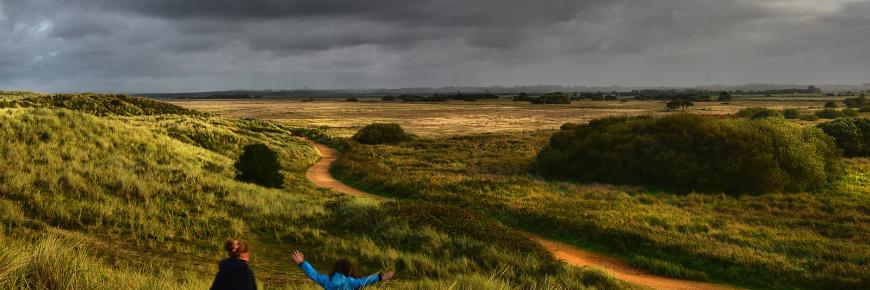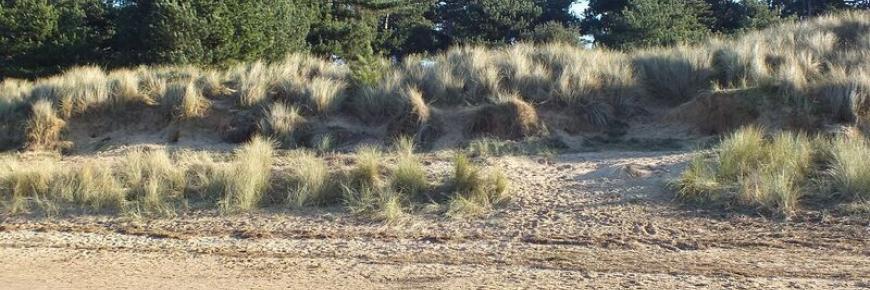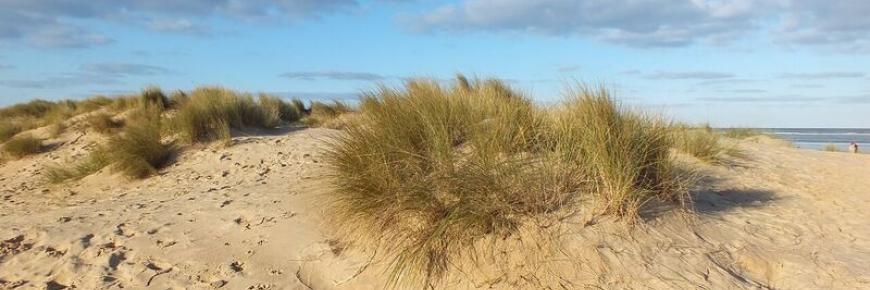Ensuring Dune Resilience Against Climate Change
ENDURE was an European project led by Norfolk County Council, UK with the INTERREG Two Seas Programme 2014-2020.
Dunes are natural sand hills in between the beach and the land behind it. Dunes are created when sand blown onshore is trapped by vegetation and begins to accumulate in ridges. Over time, dunes shrink and grow, washed away by storms or advancing inland. The wind constantly reshapes dunes and supplies them with more sand. Waves and currents also constantly add new sand to beaches and dunes. This makes dunes a very dynamic landscape able to adapt to changes in the area. This natural adaptability, also called dune resilience, is very important in the context of climate change.
As a first natural buffer zone between land and sea, dunes play an important role in keeping the land from flooding – a role which becomes all the more essential now that sea levels are rising.
A strong and healthy dune system can thus reduce the risk of flooding and coastal erosion. The ENDURE project has therefore looked into how these natural qualities of dunes can be employed to resist climate change effects such as coastal flooding, erosion and sea level rise
The project has looked at how sand dunes can be established as adaptive, living sea barriers. Such a nature-based solution to flood risk is also called a ‘soft’ barrier. Many traditional concrete sea defences, also called ‘hard’ interventions, are old and failing and can be expensive or challenging to maintain. Natural ecosystems such as dunes can provide better, more resilient protection: sand dunes naturally migrate, flex and evolve to create a self-replenishing barrier to the sea.
However, dune resilience is often compromised by poor coastal management. Dunes are often squeezed into narrow strips along the shore or starved of the sand needed to replenish themselves. They are eroded by people visiting or disrupted by the presence of beach buildings and sea walls. In addition, policies often focus on resolving the problems that occur after erosion or flooding, rather than preventing these events from happening in the first place.
Over three years, ENDURE has worked collaboratively with various partners and scientists working in the 2 Seas region. Relying on cutting-edge research, design and innovation, the project has contributed to the development of a coastline with more natural resilience to erosion, flooding and rising sea levels.
INTERREG is an ERDF co-financed initiative which aims to help local and regional governments across Europe deliver better policy. For ENDURE, the focus is on the role of dunes in coastal policies resisting the effects of climate change.
The ‘2 Seas’ zone covers the coastal regions of the Southern North Sea and the Channel area, comprising four different countries: the UK, France, Belgium and the Netherlands. As much as 420 km of the coastal landscape in the 2 Seas area consists of dunes, making it the most dune-protected coastline in Europe.



